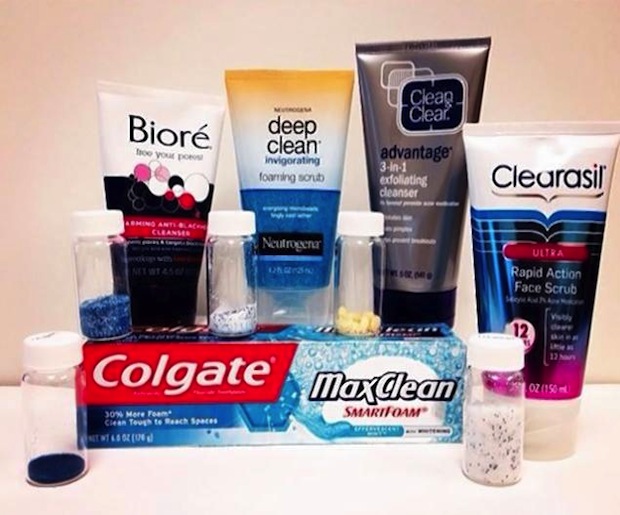Earlier this week, lawmakers in Albany, New York lit a fire under the beauty industry when they moved to outlaw microbeads in personal care products.
Why would politicos bother with such a seemingly trivial thing? Turns out that, according to scientists' estimates, the beads are
so "micro" that they slip through the filters at sewage treatment plants and show up in the
tens of millions in the Great Lakes -- with off the charts high concentrations on the New York shores of Lake Erie.
READ: 17 Best Body Scrubs
The big deal? The fact that marine life is gobbling up the beads and we, in turn, may be too. (This problem isn't limited to New York, the beads have been found in the L.A. River and Pacific Ocean as well.)
In fact, the problem is so far-reaching and scary that, in an effort to engage the body-scrubbing public, 5 Gyres, a group that works to fight plastic pollution, has launched a free app,
Beat The Bead, that allows consumers to scan barcodes to see whether their favorite products contain the problematic microspheres.
The first manufacturer to respond to word of the proposed ban has been L'Oréal. The cosmetic giant admits that it's aware of the environmental repercussions of some of its products and has decided to phase them out.
Great, right? Yes. But, it's not that simple.
Turns out that the microbead is virtually peerless in its skin polishing capabilities and that replacing it will, as L'Oréal said in a statement released yesterday, "Require the analysis and identification of viable alternative(s) that can meet any criteria (including human and environmental safety, efficacy, sustainable sourcing of the raw material and overall costs."
READ: Beauty Tips From a Man: What He Notices (And, What He Doesn't)
The phasing out will start with Biotherm this year, followed by its Body Shop products in 2015 and the rest of the company's products in 2017.
New York Attorney General, Eric Schneiderman, is thrilled by the conglomerate's decision to act before being forced to.
"I applaud L'Oréal for quickly deciding to discontinue the use of microbeads in its products. Cooperation from the cosmetics industry signals a critical step toward protecting and preserving our environment. We hope that other companies will take similar action to combat this emerging threat to our wildlife and public health."
